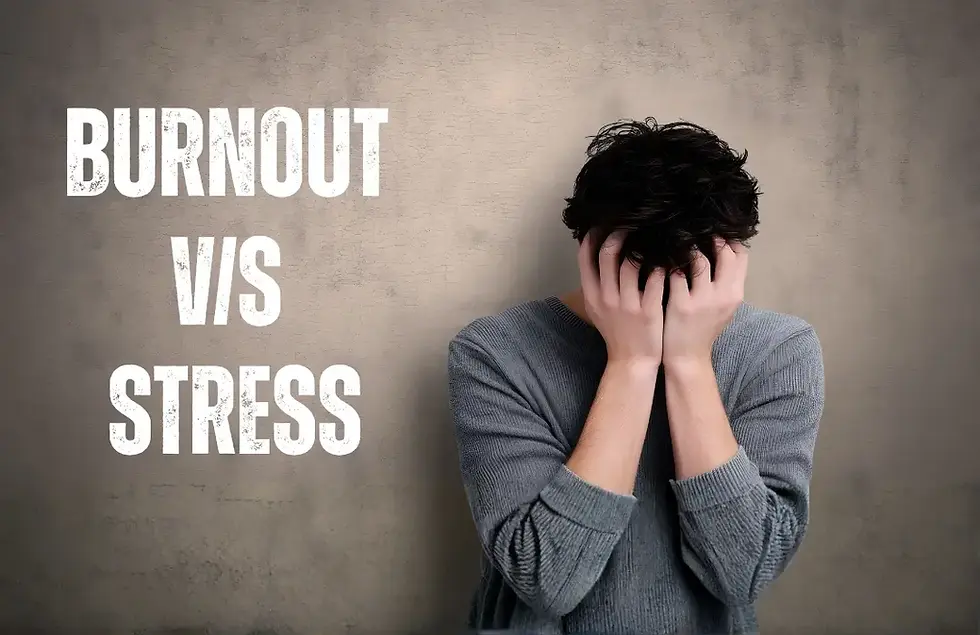What Is Depression, And How To Deal With It?
- Mosaic Mental Health

- Oct 24, 2022
- 4 min read
Updated: Nov 26, 2025

Everyone experiences sadness at some point in their lives. It is usually due to disappointment, frustration, or the loss of someone dear to us. Sadness is natural. Time heals, the mood improves, and people go about their lives. However, for some people, depression can be so severe that it takes over their lives and prevents them from managing it. Depression of this severity is a medical condition that requires proper treatment. Again, feeling sad is normal, but when it becomes so severe that it dominates your life, it is recommended that you seek help. Learn about the symptoms and causes of depression, as well as the various types of treatment and medication available medication options for depression like Wellbutrin.
What Is Depression?
Depression is characterized by a persistent sense of sadness and loss of interest that prevents you from carrying out your normal activities. Depression manifests in different ways, with symptoms ranging from mild to severe. Depression, in general, is the result of a combination of events and factors.
Depression can hit at any age, but the likelihood of having it rises with puberty and in the twenties. It is also common during pregnancy or after childbirth. Untreated depression is linked to an increased risk of suicide, substance abuse, and chronic physical conditions such as arthritis, diabetes, high blood pressure and other cardiovascular disease, back pain, and more.
Causes Of Depression
While the precise cause of depression is unknown, several factors can be linked to its development. In general, depression is the result of a combination of biological, psychological, social, and lifestyle factors.
Life events that are stressful, such as retirement, job loss, divorce, the death of a loved one, or moving to a new house, can trigger a depressive episode. Social factors also play a role. We may be more vulnerable to depression if we are alone, have few or no friends, or have chronic health problems.
Symptoms Of Depression
Symptoms can range from emotional to physical changes. A depressed person may experience the following symptoms:
Persistent feelings of unhappiness
Mood can sometimes also be angry or irritable
Suicidal thoughts
Changes in sleeping routine
Unable to focus and think clearly
Low energy
Persistent feelings of guilt
Loss of enjoyment in normal activities
Hopelessness and feelings of worthlessness
Crying regularly and feelings of overwhelming sadness
Changes in eating habits, such as significant weight loss or gain
Headaches, muscle aches, and gastrointestinal distress are among the common physical complaints (if other causative factors ruled out by a medical professional).
Depression symptoms can make it difficult to participate in normal daily activities and can cause impairment with employment, school, relationships or social functioning, and other areas of functioning. For these reasons, it can be difficult for someone suffering from major depression to seek help and adhere to treatment. However, please consult a mental health provider if you are depressed. Seeking help as soon as possible can help prevent symptoms from worsening.
Depression Treatments
Antidepressants and other medications, as well as non-drug therapy are used in treatment. A combination of treatments is usually recommended: medication for relatively quick relief and psychotherapy to learn more effective coping strategies for life stresses.
Although treatment is tailored to the individual, the following standard treatments are recommended:
Medication
Family Counseling
If necessary, hospitalization
Process-oriented talk therapy
If necessary, residential treatment
Cognitive-Behavioral Therapy (CBT)
Alternative therapies (nutrition plans, exercise plans, meditation, or mindfulness strategies)
Depression is extremely treatable. A person's quality of life can greatly improve when clinical depression is recognized and treated.
Where Can I Get Depression Treatment?
Depression is frequently misdiagnosed and, if left untreated, can last for months or even years. It is critical to seek help as soon as possible because the sooner a person receives treatment, the sooner they can recover. Untreated depression can have a wide range of negative consequences in a person's life. There is no single proven method for people to recover from depression, however, various effective treatments can be utilized and individualized by mental health professionals who are available to assist people in their recovery.
The Right Provider for Your Journey
Mosaic Mental Health, PLLC is a professional psychiatric clinic based in Katy, Texas that also provides telehealth throughout Texas, Colorado, and Washington State. As licensed Mental Health Psychiatric Providers, we can recommend individualized medication regimens, refer to therapists, and help you better understand and manage your or a loved one's condition.
We provide treatment for mood disorders like depression, attention deficit hyperactivity disorder (ADHD), anxiety disorders, sleep disorders and thought disorders. Patients over the age of 18 are welcome.
For more information, call (713) 987-7828 or visit - https://www.mosaicmentalhealthtx.com/.
We also use the Spruce Health app to allow clients to stay in touch and securely contact the provider and staff via text, phone, and email for added convenience and accessibility.
Professional assistance is available if you or someone you know is struggling with depression. Seek treatment right away. Don't suffer in silence. There is effective and readily available assistance.
Related Post : How bipolar disorder compares to depression.

.png)



Comments